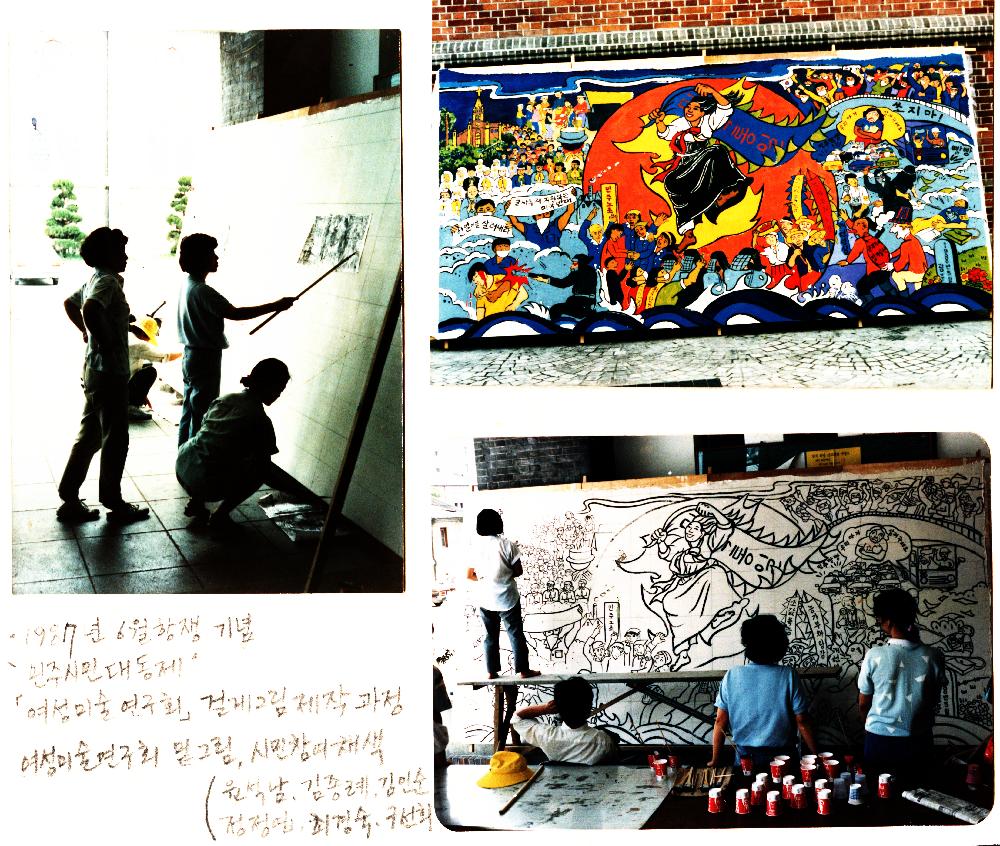
Articulating the Aesthetics of Democracy and Women’s Liberation: The Quest for a Decolonial Art history in South Korea
Stony Brook University, SUNY Sohl Lee
February 22, 2023 · 4:30 pm—6:00 pm · 202 Jones Hall
East Asian Studies Program

Swept up by a nation-wide democracy movement in the 1980s, South Korea witnessed its streets, public squares, and art galleries occupied by a radical aesthetics of politics. During the “minjung art movement,” as it had come to be known by the mid-1980s, the subjectivity of “minjung” (literally, “common people”) signified a utopian horizon of popular sovereignty and liberation from the US-backed authoritarian regime. This was accompanied by wide-spread recognition among artists that the authoritarian regime’s reformulated neocolonial relations with Japan during the global Cold War continued to shape the institution, discourse, and historiography of the art world, as much as they affected the production of reception of art in South Korea. From the earliest days of the movement, many of the participants had been women, but the articulation of an art and aesthetics for women’s liberation emerged only in its later years. At stake was the formulation of precise terms under which the demands of women’s liberation would be fundamental to the political project of an alternative nation-building, which, as Sohl Lee argues in her forthcoming book on the minjung art movement, strived for democracy and decolonization simultaneously. This talk at Princeton, which stems from the book project, explores individual and collective art productions by the women artists of the movement who re-envisioned the processes of democratization and decolonization on their own terms. Historicizing this quest for the feminist aesthetics of decolonial democracy in South Korea, Lee argues, has broader implications for moving beyond the epistemology of Cold War politics in art history. While addressing the often-lodged criticism of the pro-democracy social movement’s reliance on heroic masculinity—stances embraced by both male and female participants—this talk will bring to light the core origins of a feminist collectivism whose questioning of democracy and decolonization still resonate with us today.















